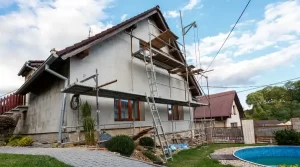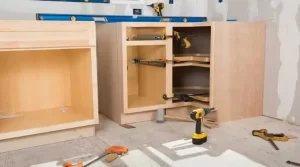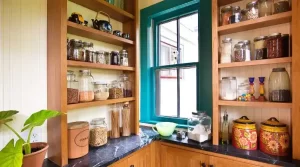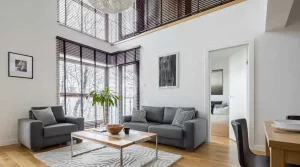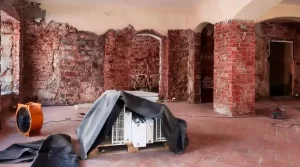How meticulously your custom builder plans the budget for building your home will directly translate to how exact and precise they will be in managing your project. If a potential custom builder cannot show that they have invested the time, knowledge, and careful diligence to build a budget that will end up as close to reality as possible, then be sure to move on to a different custom builder candidate. You must be able to trust that your custom builder will be the best possible steward of your resources.
Fundamentals of a Custom House Budget
Budgets for custom homes are unique in that you are NEVER comparing apples to apples. Making thorough and realistic budgets for one-of-a-kind homes involves taking into account a lot of different factors. You should take the time to assess whether your builder has made the necessary preparations for success.
Additionally, keep in mind that your budget can be more thorough the more choices you make prior to placing your bid. More options will result in the builder making fewer assumptions and adding fewer allowance items to the budget.
Are you curious about the decisions that must be made before constructing a bespoke home? Click here to view our earlier blog entry.
There are several methods builders use to calculate a budget for a bespoke home:
1. Make use of numerous bids and past data
This method yields the most accurate cost projections for a given architectural design. Your builder should be prepared to invest the time and knowledge required to provide you with a truly realistic estimate of the cost to build your home once the drawings and specifications are finished. This is done by asking for and carefully evaluating hard quotes from their network of subcontractors, comparing those figures to previous project expenses, and developing a comprehensive itemized budget. A thorough custom home budget requires a significant investment of time, money, and expertise, which is why some builders look for areas where they may save money, such as in the following two strategies.
2. Rely only on past data
Although it is permissible to utilize historical data to create a rough estimate that will serve as a reference for the architectural design stage, it will not be sufficient to create a thorough final budget for a custom home like yours.
3. Contract with a private estimating company to create the budget.
If one of your prospects for builder employs this strategy, RUN. This suggests that they are lacking one or more of the following: a dedication to thoroughly examine your architectural plans, the historical information required to confirm bid totals or develop a truly thorough budget, a large subcontractor network to which they can reach out for quality bids, the manpower required to develop a meaningful and accurate budget, and a dedication to being the best steward of your resources.
Meetings to Present the Budget
We strongly suggest setting up a face-to-face budget presentation meeting with each custom builder candidate in order to assess how complete and precise their budgets are. It is crucial to go through the budget with them, understand and clarify any assumptions that were made when estimating the cost of particular budget line items, and go over the various options that are open to you in order to further customize the budget. More generally, this encounter gives you the chance to evaluate their communication style, attention to detail, and level of knowledge.
You should keep the following inquiries in mind during this meeting:
How thoroughly did the builder review and understand your architectural plans?
You can be more confident that they have identified and budgeted for all challenging aspects of your home design the more closely they have examined your blueprints.
Did they inform you of the suppositions they made when preparing your budget?
There are countless tiny and large aspects that go into custom homes, therefore it is inevitable that not everything will be specified in your architectural design or requirements. As a result, the builder will base his budget estimates on a variety of assumptions. It’s crucial that they take advantage of this chance to discuss those with you and clarify which of those assumptions needs to be revised in order to increase the budget’s accuracy.
For significant line items, did they receive several bids from high-value subcontractors?
A number of bids should be sought specifically for the foundation, roofing, plumbing, electrical, HVAC, windows, and external and interior doors. They value your resources very highly, which is demonstrated by their willingness to go through the time-consuming exercise of soliciting and carefully evaluating multiple bids. It also demonstrates how meticulous and detail-oriented they are in their operations and how committed they are to giving you exceptional service and value both now and throughout construction.
Do they check each proposal to make sure it is thorough?
At this time, flaws in subcontractor bids could later lead to expensive change orders, budget overruns, and schedule delays.
To win your project, did they bring on low-quality subcontractors?
A budget constructed from low-quality subcontractor bids may be pleasing to the eye, but it won’t be kind to your cash. Using poor-quality subcontractors can result in shoddy work, more errors during construction, spiraling timetable delays, and more warranty problems after a move-in.
At the time you met to go over their budget, did they offer you any options?
There are numerous approaches to put into practice each of the countless things that were described above. A smart custom builder will seize this chance to learn more about your priorities and the features you want to include.
Did they fully justify and explain all permitted amounts?
You should be aware that allowance items are merely plug-in figures, therefore you should know how the builder arrived at each one. If a builder is more interested in getting your business than giving you a reasonable budget, their allowance levels may not always be based on realistic estimations of what a specific line item would cost. When the builder learns more about your preferred level of finishing, changes may be made during your budget presentation meeting.
Did they validate the figures in their budget using historical information for previous homes of a similar design?
This is advantageous for your budget and shows how much expertise they have in creating residences similar to yours. Never let your house serve as a test subject for a builder.
You may find out not only how much it will cost to build your home, but also how confident you are in your builder, by meeting with your custom builder and asking some important questions to evaluate the method they used to produce the budget for your custom home. As you build a custom home, this information will be of immeasurable value.



